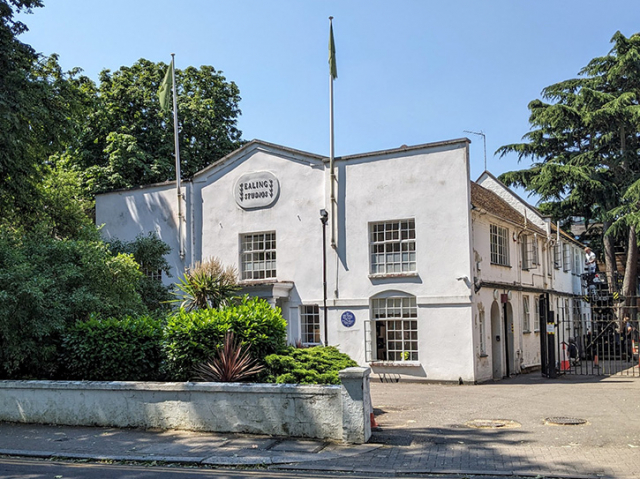Ealing Branch Programme

Branch contact: All enquiries to Dr Philip Woods philipgwoods@outlook.com tel. 07922046578
Venue: All talks (with the exception of November meeting) start at 7.30pm on the second Tuesday of the month, and take place at Ealing Green Church, The Green, Ealing, W5 5QT. For details of transport and parking please see our website.
Talks are live events but with the speaker’s permission we aim to make a recording available afterwards to those registering on Eventbrite (the booking link will be available on our website in advance of each talk)
Associate membership £15 per year. Talks free to national HA members and students, visitors £5.
Branch website Ealing Historical Association | EalingHistory.org.uk
Ealing Branch Programme 2025-26
Tuesday 9 September 2025
Emeritus Professor Anthony Howe, University of East Anglia
‘Free Trade or Tariffs? The British experience, 1780-1914’
In the age of Trump, free trade, tariffs, and tariff wars have recently become headlines again after having long disappeared from popular consciousness. But for much of the nineteenth century these issues were central to British politics. This talk examines the changing policies culminating in Britain being seen as a ‘Free Trade nation’ before this dominant ideology met a series of challenges in the decades before the First World War
Tuesday 14 October 2025
Dr Daniel Cowling, National Army Museum
‘Don’t Let’s Be Beastly to the Germans: The British Occupation of Germany, 1945-49’
In the spring of 1945, a British civilian and military force arrived in northwestern Germany, the former industrial heartland of a defeated nation. They were tasked with building democracy from the ruins of Hitler's Reich, and 'winning the peace' by eradicating Nazism from German hearts and minds. This talk will explore the history of the British occupation of Germany and the challenges that emerged in the aftermath of victory.
Tuesday 4 November 2025
Professor Lucy Wooding, Lincoln College, Oxford
‘English Reformations: continuity and change in Tudor religion', speaking to the sixth-form evening at Twyford CofE High school, W3 9PP, 6.30 pm.
N.B. This talk is our annual lecture which is aimed particularly at local sixth-form History students. Please note the different time and venue for this meeting to which all are welcome.
This lecture will discuss the many different forces at work in the shaping of religious change during the sixteenth century, and ask how far underlying continuities survived the experience of disruptive religious and political initiatives.
Tuesday 9 December 2025
Branch Annual General Meeting. Christmas social and event
Tuesday 13 January 2026
Professor James Bjork, King’s College, London
‘Where are the Poles? Redefining National Belonging in Poland after the Second World War’
In this talk, Professor Bjork will be discussing his research into the debates and anxieties surrounding ethnic difference and divergent historical experiences that lurked beneath the image of culturally uniform postwar Poland. He will be focusing in particular on how the Roman Catholic church—ostensibly the guardian of a monolithic ‘Polishness’—wrestled with the challenges of mass migration and cultural difference within its parish communities.
Tuesday 10 February 2026
Professor Kate Cooper, Royal Holloway, University of London
‘The Family in Slavery and Freedom: Evidence from Late Antiquity’
This talk surveys the landscape of domestic slavery in the later Roman Empire, the period when Christian ideals first impacted the ethical conscience of Roman elites. Surprisingly, we have particularly good evidence for the ethical debates about the conduct of female slave-owners, which can be illuminated by comparison to recent scholarship on nineteenth-century plantation slavery.
Tuesday 10 March 2026
Dr Ariel Hessayon, Goldsmiths, University of London
‘The Early Quakers and the English Revolution, 1641-1660’
Of all the new religious movements that emerged during the English Revolution of 1641–60 the Quakers were the largest, most successful and enduring. This talk will look at its defining characteristics, also its preaching, literary style, modes of speech, use of silence, prophetic behaviour and attempted miracle working within the context of a widespread belief in an imminent apocalypse and the re-emergence of Christian primitivism. Finally, it will suggest some reasons for the success of early Quakerism: the appeal of its message and charisma of those who preached it – notably George Fox (1624–1691) and James Nayler (1618–1660)
Tuesday 14 April 2026
Professor Rebecca Earle, University of Warwick
‘What can you learn from a cookbook (other than how to cook)?’
This talk, which was postponed from last year, explores the value of cookbooks as historical sources, and also encourages participants to investigate the family histories embedded in the cookery books and notebooks containing their grandmother’s recipes that clutter their own bookshelves. Cookery books, in short, are a remarkable and powerful window into the past.
Tuesday 12 May 2026
Professor Nicholas Guyatt, Fellow, Jesus College, Cambridge
‘Jefferson's Wolf: The Struggle to End Slavery in the Founding Era’
4 July 2026 is the 250th anniversary of the Declaration of Independence, and of the ringing claim that ‘all men are created equal.’ The author of the Declaration, Thomas Jefferson, owned more than a hundred human beings when he wrote those words and many hundreds more before his death, exactly fifty years later, on 4th July 1826. He freed just a handful of enslaved people across his long life, and a handful more in his will. How do we account for the fact that America’s founding proponent of equality was so thoroughly implicated in slavery? Professor Guyatt shares the findings of his new book on Jefferson (co-authored with Christa Dierksheide)
Tuesday 9 June 2026
Professor Heather Jones, University College London
‘The First World War in the Mediterranean’
This talk focuses on the First World War Allied blockade of the Mediterranean, a maritime blockade initiated by Britain and France, later assisted from 1915 by Italy and other Allied powers. It argues that this blockade raises major questions about the ways that the First World War became a ‘total war’, showing wartime radicalisation in the targeting of civilian non-combatants and how this became a war norm.


